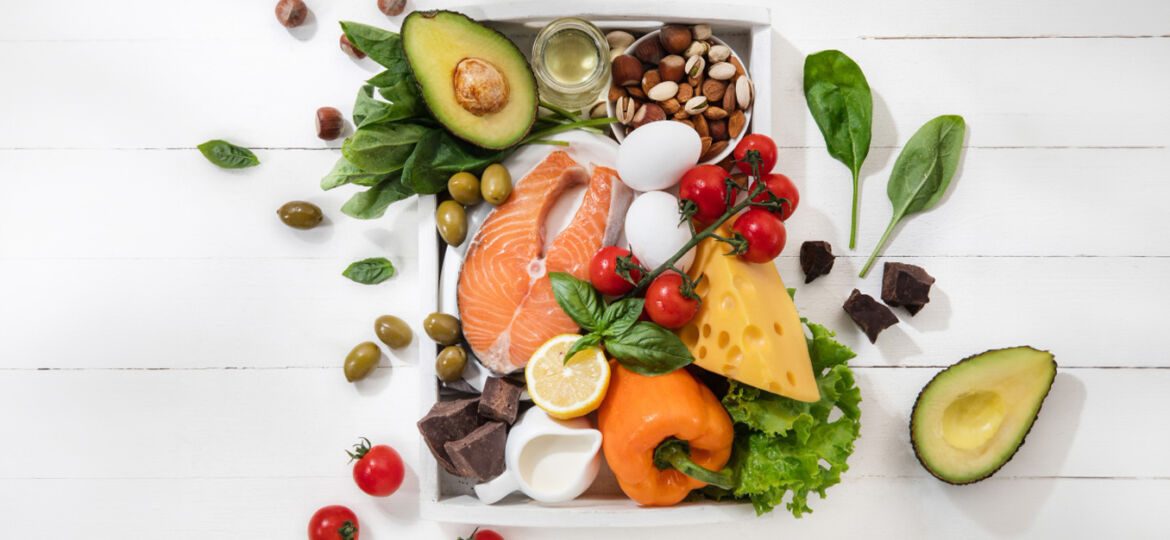
Importance of diet in oral health
Published: April 19, 2024 9:09PM EST
We’ve all been told that we need to brush, floss and see the dentist regularly to promote the health of our teeth and gums. Poor oral health can lead to problems such as gingivitis, cavities, and tartar buildup. Neglecting your teeth can also result in more serious health problems like respiratory infections, heart disease and diabetic complications.
Clearly, good oral hygiene practices are essential. What you might not think about as much is the impact that your diet plays on oral health. Recommendations from a recent study suggest that an “oral health optimized diet” can significantly reduce gingivitis and periodontal inflammation1. What does that mean for you? Read on to learn about which foods you should eat or avoid to keep that smile (and the rest of you) healthy!
Dairy Products
Foods like cheese, yogourt, and milk are beneficial in protecting and strengthening enamel and fighting bacteria. These foods contain calcium, phosphorous and casein which help form and re-mineralize enamel. Drinking milk or eating cheese after consuming sugary food can further help protect your teeth by neutralizing acid levels.
Fibre
High-fibre foods will generally require more chewing, which produces more saliva to help neutralize bacteria. Opt for whole fruits and vegetables instead of juices to reap the most benefits. Celery is a good example of a fibrous vegetable that requires plenty of chewing. Its abrasive texture can also help massage gums and clean between teeth.
Vitamin C & D-Rich Foods
Vitamin C is known for preventing inflammation and keeping gums healthy and strong. Good sources of dietary Vitamin C include citrus fruits, berries, and dark leafy greens. Vitamin D is essential for absorbing and regulating calcium levels and prevents gum inflammation. Fatty fish, milk and cheese are good sources of Vitamin D. The sun is an important source of Vitamin D, which is why supplements are often required by those living in countries with less sunlight.
Omega-3 Fatty Acids
Our bodies cannot make Omega-3 fatty acids, which means we need to get them through diet. Foods that are rich in Omega-3s include fish (especially wild-caught salmon), eggs, and flax-seed oil. There is growing evidence that Omega-3 fatty acids can help reduce inflammation, in addition to many other health benefits.
Water
Skip the soda and drink more water instead. Water helps keep your gums hydrated and stimulates saliva production. More saliva = better protection against harmful bacteria. You can also use water to rinse away trapped food that can cause bad breath and tooth/gum damage.
Eat Less Carbohydrates & Sugary Foods
The idea that sugar causes cavities has been ingrained in most of us from an early age. It’s not the sugar itself that causes damage but rather the chemical reaction it initiates. Mouth bacteria use sugar to produce acids that cause plaque build-up, enamel erosion and cavities. “Sugar” can refer to the obvious sweets and sugary drinks, but also carbohydrates such as grains, rice, and fruits. Obviously, there are many benefits to choosing healthier fruits and grains over candy but limiting overall carbohydrate intake could go a long way in protecting your teeth. Instead of starchy white rice, try whole grain or cauliflower “rice” for example.
Contact the team at Royal Square Dental to schedule an appointment and learn about more ways to optimize your oral health today.
References
- Woelber, J. P., K. Bremer, K. Vach, D. König, E. Hellwig, P. Ratka-Krüger, A. Al-Ahmad, and C. Tennert. “An oral health optimized diet can reduce gingival and periodontal inflammation in humans – a randomized controlled pilot study.” BMC Oral Health 17.1 (2016): n. pag. Web.
Original Article: Royal Square Dental (www.royalsquaredental.com)

